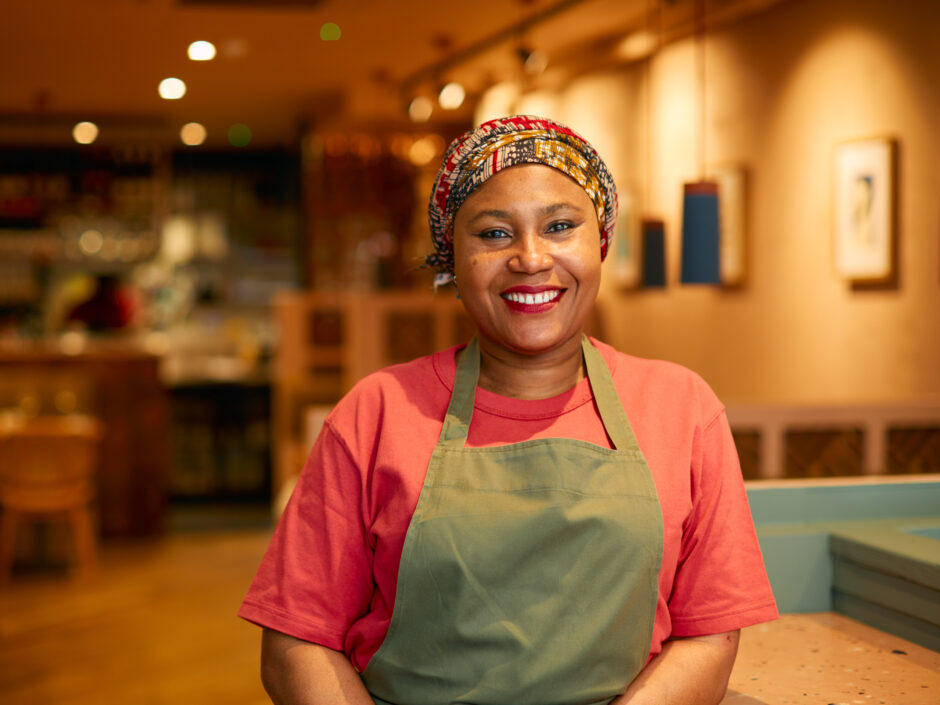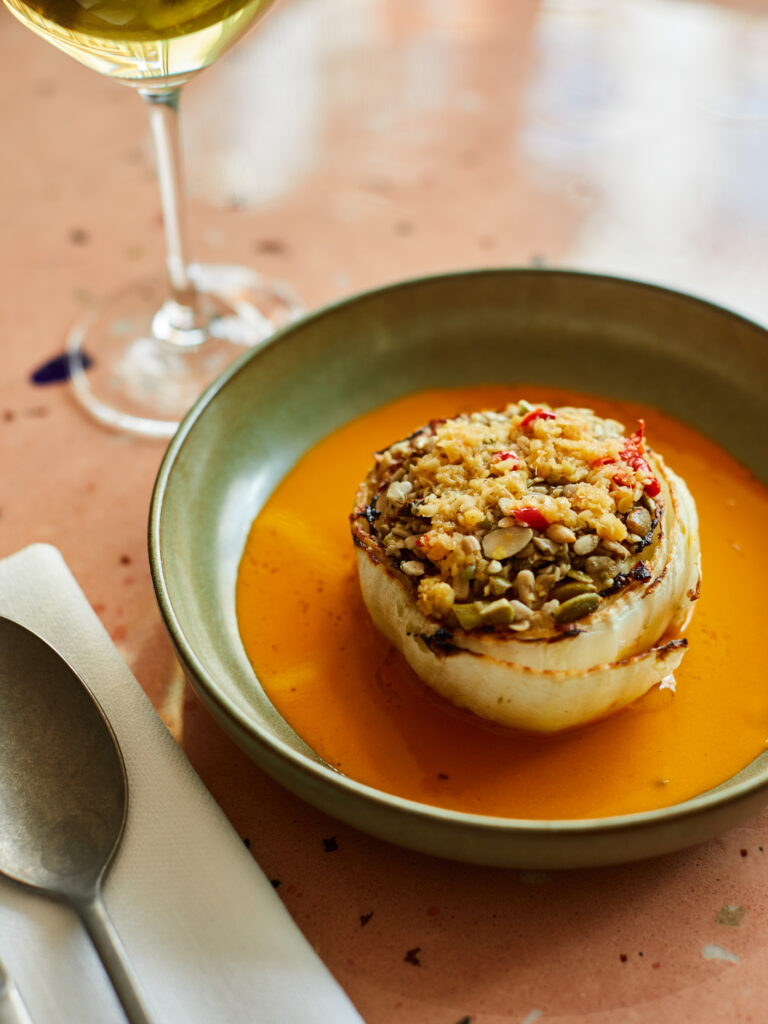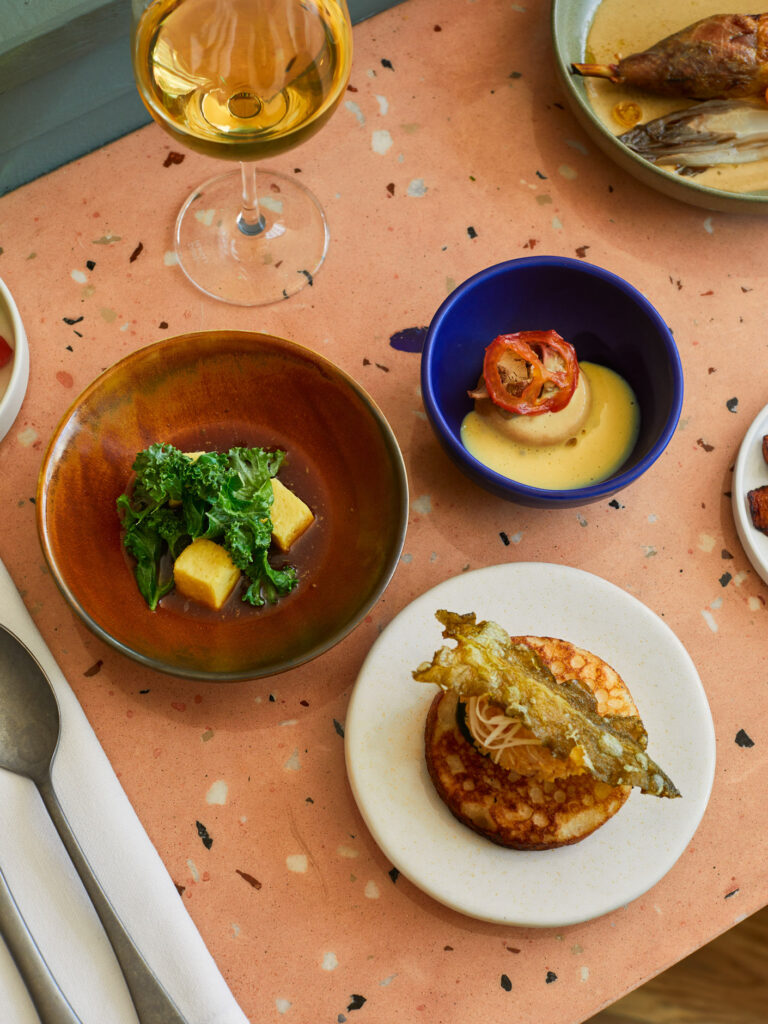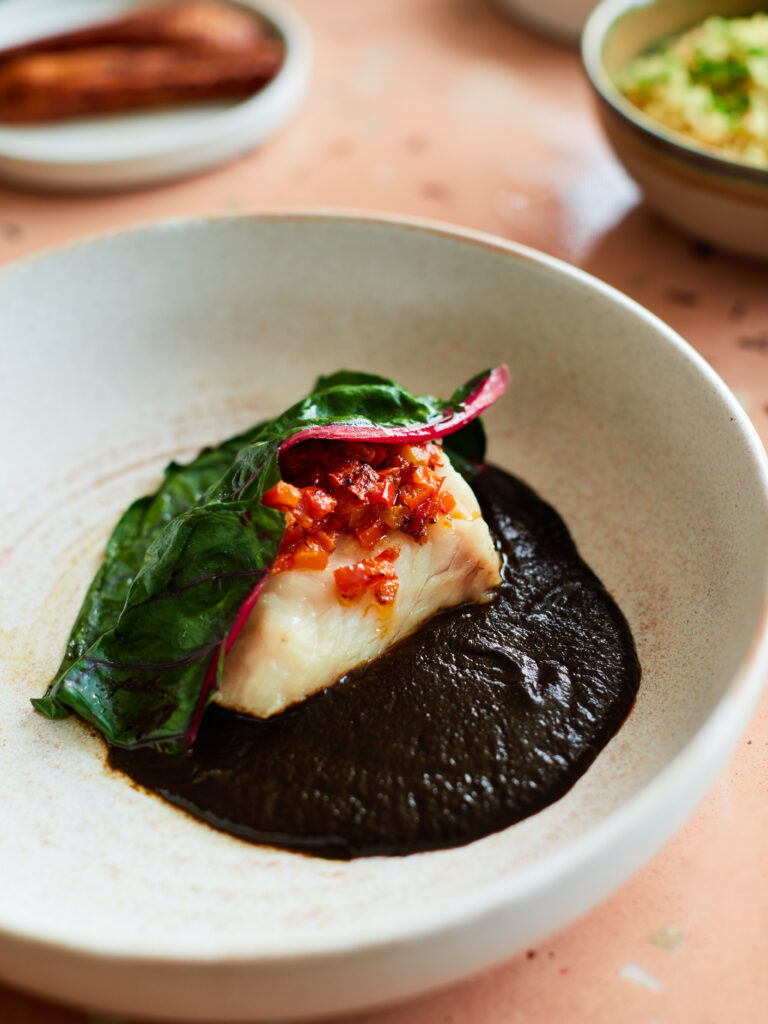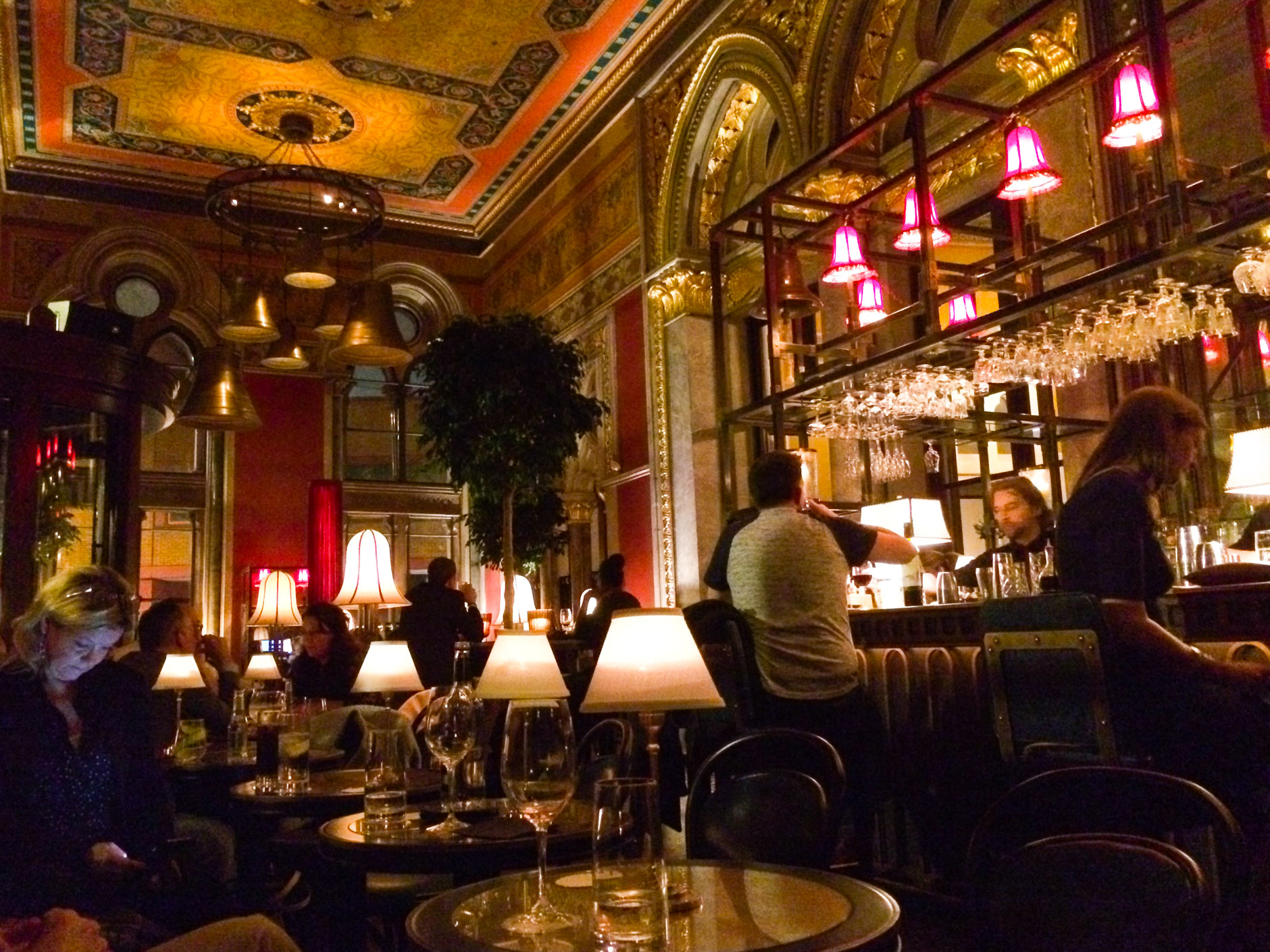Palate writer Amanda David (AD) talks with Chishuru owner and executive chef Joké Bakare (JB) about the rocky path from Brixton Market pop-up to Michelin-starred Fitzrovia restaurant, and the under-representation of West African cuisine in the UK.
AD: I understand that Chishuru means ‘to eat quietly’. What is the thinking behind this as the name for your restaurant?
JB: Chishuru means the silence that descends on the table when the food arrives. Nigerians have a reverence for food on par with the French or the Italians – it’s that serious for us. What I’m aiming to do is serve food that demands your attention.
AD: I’ve eaten your food in Brixton, in your collaborative pop-up in Borough and here in the new restaurant: looking back, you seem to have had a consistent style and ethos from the start – do you feel that is true?
JB: I hope so, yes. I call myself “a Londoner by way of Nigeria” and I hope that’s reflected in the food. It is intended to be recognisably Nigerian in flavour but with a London presentation or twist.
It’s so pleasing when customers are delighted with the food and tell us it’s the first time they’ve tasted anything like this
AD: Given that you are re-imagining West African food in your own unique way, what part does tradition play for you?
JB: There are certain elements that have to be in a dish for it to be called that name. You can riff on it if you want, but it must exist within those parameters – it must have the heart of the dish. For example, if you’re making an nsala sauce, it must have a meat stock and a root vegetable to thicken it, but no oil – you can then change the spices you use, but you have to start with those fundamentals.
We serve a dish called moi moi and the reaction from customers who know the dish already is so interesting: they know it’s moi moi, it tastes like moi moi, but reimagined and reconstructed.
AD: You have mentioned that many customers tell you this is their first experience of West African flavours; do you feel any responsibility or opportunity because of this? For example, do you think about a western palate in any way when developing dishes, and did it affect your decision to serve a set menu?
JB: It’s an opportunity in the sense that it’s so pleasing when customers are delighted with the food and tell us it’s the first time they’ve tasted anything like this. We debate this very issue when it comes to the use of chilli and heat in the food – it’s a key component in all my cooking, and so it’s important to me not to dumb dishes down to cater to palates that are not so used to it. Go to a good Thai restaurant and they do the same thing.
Yes, the decision to serve a set menu only was partly driven by the fact that customers would be unfamiliar with so many of the dishes that it made sense to guide guests through the meal.
AD: Why do you think African cuisine is generally under-represented in the UK’s dining culture, compared to say Chinese or Indian food? What needs to change?
JB: It’s pretty simple: the first wave of Nigerian immigrants came from middle class families and so there wasn’t a tradition of working in hospitality. Plus, if you wanted to eat food from home, there was always an opportunity within the community – at the church or at the mosque when different people would bring different dishes that they were good at; there wasn’t just the opportunity to buy it commercially. Middle class Nigerians were very keen on French and Italian restaurants.
Furthermore, Brits don’t really see west Africa as a holiday destination (unlike Thailand or Vietnam for example) and haven’t built up that familiarity with the cuisine. In terms of what needs to happen, it makes me laugh – in a nice way – that people are now talking about the “West African movement” in London dining, and I think if that catches on then we’ll see more and more new chefs coming forward. My business partner Matt and I have a sweepstake on when you’ll be able to buy yaji (a spice blend) in Waitrose.
AD: 2023 was pretty huge for you, and a bit of a rollercoaster! What are your plans for 2024 and what’s next for Chishuru?
JB: 2023 was an emotional roller-coaster honestly. The Borough pop-up opportunity fell into our laps at the last minute, and the struggle we had getting our lease signed on our new site shredded our nerves for a period of three months – it was awful. 2024 is all about consolidation and refining the offer. Brixton to Oxford Circus is 15 minutes on the Victoria Line but it feels light years apart and we need to fully understand Chishuru 2.0. Restaurants are all about constant tiny changes and improvements. It’s been a joy so far.
This interview was originally published on 1 February 2024 with a minor edit made to the introduction after Chishuru was awarded its first Michelin star a few days later.
Photos courtesy of Joké Bakare and Chishuru.

